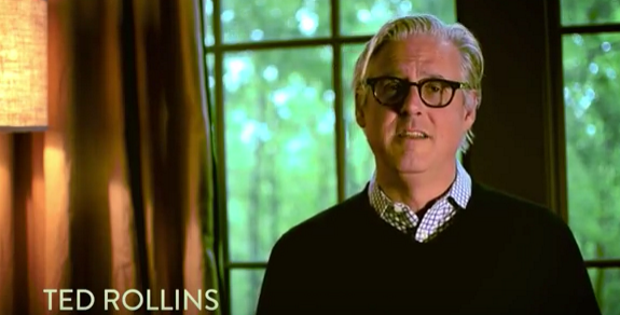Becoming An Entrepreneur: An Interview With Ted Rollins

I was so excited to learn that I had a chance to interview with Ted Rollins. Ted is a successful entrepreneur recognized by the Inc. 500 as the founder of the number two fastest growing business in his division. He’s also a regular nominee and finalist for Ernst and Young entrepreneur of the year.
Ted has founded a variety if businesses, including Campus Crest Communities. He started Campus Crest with $14,000 and grew it to become the second largest student housing platform in the world. Today, it’s listed on the New York Stock exchange with assets in excess of $2.3 billion.
He’s now on the eve of his latest venture, Valeo Groupe, a multinational vertically integrated niche housing platform. We sat down to talk about his perspectives and his story. I was also anxious to learn a few things from the his experience growing businesses over the years.
If you’re interested in starting your own business, listen up. Ted Rollins has a few ideas you won’t want to miss.
Q: What was the first business you founded? What drove you to start that company?
The first business that I founded was RFP Group. It was a company based in Delaware that developed hotels.
I started my career after graduate school at DUKE in New York as an investment banker and we worked with many companies on transactions to finance them. I was also able to meet many entrepreneurs who had started their own businesses.
One of them told me when I was young that I would do much better being the owner of a business that borrowed money, sold equity, invested the money and ran the business, than I would be if I was just the banker arranging the money.
Q: So, how many businesses have you started since?
Well, lets see, I have started probably 20 or so since then. I’m a serial entrepreneur. You see, the most interesting challenge to me is to navigate the start up of a business and see that idea turn into reality.
Q: What are some of the biggest mistakes you’ve made over the years?
Well, first of all, there are too many to list! Probably the biggest mistake is placing faith in the wrong people. It has been a tough lesson. But there are people out there that talk such a good game and seem like someone that you might want to be associated with. But they are really not the best people to work with or worse yet, they are black-hearted.
Then there are those that are your friends and business associates in good times. But then during bad times they change their tune. You really see the true colors of people during challenging times. And, believe me, if you are out there working hard growing your business, there are always challenges and harder times.
These days we mostly work with people that we know or that one of our close associates know. And, if we have an inkling of a doubt about the three “I’s”—those are Integrity, Intellectual Capacity or Intensity—we won’t work with them.
People are just such a critical part of any business that it’s important to get it right.
Even though this is one of my biggest mistakes, I still keep my faith in people and give them the benefit of the doubt. I’m just much more cautious and check them out a bit more, that’s all.
Q: What lessons are you able to pull from those mistakes that could help other budding entrepreneurs?
Be careful who you get into business with and who you deal with. Also, find the best people you possibly can and help them flourish in your business. Put your team above all and they will take care of the customer
One thing I learned as we grew from a start up to a New York Stock Exchange company is that some of the people that start with you, won’t make it all the way on the journey. If your business takes off and is successful, and they are having a hard time keeping up, treat them fairly, but replace them with someone that can really do the job quickly. This will ultimately be best for both of you.
Q: Is there one mistake you think all entrepreneurs tend to make? If so, what is it and how can it be avoided?
Being overly optimistic. I believe that entrepreneurs for the most part are hard-wired optimists. And they need to be! I would say that entrepreneurs need to surround themselves with a balance of the right people they can trust and listen to. It is so important to get varying perspectives.
Now we use a very systematic planning process which includes an assessment of our various team member’s strengths and weaknesses. This process also allows each of their input as a plan is crafted and creates buy-in all the way around the team. As an entrepreneur, you are probably a “DOER!!!” . This process just helps you to put a little perspective and planning around all that action
In general, it’s also important to make time for planning and follow your plan. You can adjust it as you learn, but follow it. When I have gotten in trouble most is not having a good team of complimentary members and a plan with buy-in.
Q: If someone knows they want to work for themselves, but don’t know where to start, what would you recommend the first step to be?
There will be something out there that resonates with you. Something that you can be passionate about and wake up wanting to do. Look for these opportunities where your passion, experience and focus can be put to use. Stay focused and start NOW!!! Fifty percent of any endeavor is just getting started. It will never go the way you think it will, but persistence and adaptation as you go will help you survive those early days.
Q: What about the second and third steps?
Step 2: I would find a few people with complimentary skills to help you build your plan.
Step 3 and on: Be laser focused and positive. Most importantly, have fun while you are working. Don’t be too serious. Enjoy everything even though at the time it may not seem enjoyable. In our businesses we have a simple motto:
WORK HARD
HAVE FUN
HELP OTHERS
You will see this plastered everywhere. This is our underlying message to all that we work with.
Also, we have six non-negotiable rules of the road
- Be Accountable—Own your outcomes
- Be Accessible—Always be easy to reach and quick to correspond
- Be Reliable—Are you someone that people can trust and count on?
- Follow Through on all you do—Without exception
- Be Financially Integrated—Know your metrics and numbers
- Be Emotionally Stable—Manage your emotions and stay focused
Remember that obstacles are what you see when you take your eye off your goal.
Good Luck!





